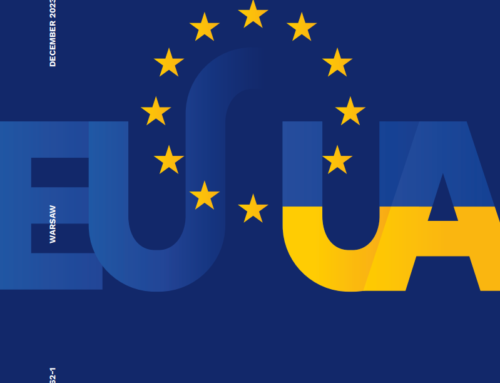Polish embargo on hydrocarbons could cost Russia as much as over a dozen billion dollars per year
Opublikowano: 31/03/2022
According to the plan announced by the Polish government on March 30, Poland will completely stop importing Russian coal in May, and oil and gas from Russia by the end of 2022. A Polish embargo on fossil fuels from Russia could cost the Russian budget several – or even over a dozen – billion dollars per year. An EU embargo on oil, gas and coal could have an even bigger impact. In 2021, EU imports of these commodities accounted for over 20% of the Russian budget, according to the Polish Economic Institute’s estimates.
In 2019-2020, around 65% of Polish imports of crude oil and petroleum products came from Russia. Over 130 million barrels of crude oil alone were imported in 2019. At the same time, Poland has been diversifying its supplies of crude oil and natural gas for two decades.
“The Polish energy sector’s independence from Russian commodities will be ensured by the supply diversification system that it has been developing for years. Poland already imports oil from Saudi Arabia, the US, regions of the North Sea and West Africa, which has allowed imports from Russia to decrease by a third over the past 20 years. Over 50% of the capacity of the Naftoport Polish Oil Terminal in Gdańsk was unused in 2021, which will allow Poland to increase oil imports from other directions. A potential lack of gas deliveries from Russia does not pose a threat to Poland, either. The transport of gas from the Norwegian Shelf via the Baltic Pipe gas pipeline will begin later this year. After the winter, Poland’s natural gas storage facilities are 65% full, more than twice the EU average, and their total capacity is being expanded and modernised. The capacity of the LNG terminal in Świnoujście is being expanded and the FSRU floating terminal in the Bay of Gdańsk will be operational in a few years. Poland’s demand for hard coal can be covered by Polish coal, supplemented with coal purchased from other countries,” said Magdalena Maj, head of the climate and energy team at the Polish Economic Institute.
Russian coal, which in Poland is used almost exclusively as fuel for households, could be replaced with coal from Australia, Colombia, Kazakhstan or the US. In addition, the thermal modernization of buildings and the replacement of coal-powered heating sources will reduce households’ demand for coal.
“Other EU countries could follow in Poland’s footsteps. At present, the EU is 25% dependent on oil, solid fossil fuels and gas from Russia. An EU embargo on commodities would reduce Russia’s budget significantly, as exports of them to the EU accounted for over 20% of Russia’s budget in 2021. In its report entitled “An EU independent from Russia?”, the Polish Economic Institute shows that the EU is capable of moving away from fossil fuels from Russia. As early as 2022, member states could reduce imports of Russian gas by 91% through diversification, substitution and reduction. Diversifying crude oil supplies, successful negotiations with OPEC countries, redirecting supply chains, and reducing demand would also allow the EU to become independent from crude oil from Russia. A temporary increase in production in the US and Australia, and the freeing up of South Africa’s export capacity, would enable EU countries to replace Russian coal,” added Maciej Miniszewski, an analyst on the PEI climate and energy team.
Kategoria: Analysis / Press releases / Russia's invasion of Ukraine





